Eleven Books, Selected
My parents are straight-up hoarders. Not of foodstuffs or other animal attractant stuff; nothing that will quite land them on a nightmare HGTV show (one that airs right after Flipanthropy), but hoarders nonetheless. Of paper, mostly. Checklists from the early 80s show up on the regular. I currently have a gym bag ca. 1993 sitting in my car, filled with coloring books and dot-to-dots from my childhood, yellowed and deteriorating, a gift from my dad for my five-year-old. They recently found this treasure trove of archival activity books alongside a box of college catalogs from 1992. All of which was moved, just this last summer, from my childhood home to a brand-new condo clear across the state. “Not sure how these got here, but we thought we’d set them aside in case you want to look through them.” The box of catalogs is currently in their study, surrounded by credit card bills dating back into the early 2000s. Just in case.
Admittedly, I’m not a tidy person. And, thanks to genes and the environment in which I was raised, I have been, for my whole life, a collector. Baseball cards. Comic books. An endless number of recipes. Books. So, so, so many books.
Which has never been more evident than it has been the past two weeks as I try to pack up—or destroy?—the overflowing amount of paper present in the current Open Letter offices. (Short note: The business school is taking over our suite, there’s a shortage of space on campus, dominos have to fall, our new home won’t be nearly as big, and should be ready late-spring. The eternal ballet of office life at a research institution.) Any move is painful—there’s always more stuff than you think, and deciding what stays and what goes can be literally exhausting—but a move involving hundreds of boxes of books is one of the most physically draining exercises to do alone. On the upside, I’m pretty jacked now thanks to boxing and carrying the entire Dalkey Archive library—a collection I’m proud of, and which is almost complete—and all of the Open Letter overstock to a storage unit, but even with all those books cleared out, there’s still a surfeit of paper. I honestly didn’t realize how many notebooks I had christened with: “think really hard about catching up on email” before stuffing them into a drawer.
 And that doesn’t include the galleys I’ve been saving for over a decade, with which I fire-hazarded our hallway in hopes that students would feast on free literature. (A lot of them did! Yet barely made a dent.)
And that doesn’t include the galleys I’ve been saving for over a decade, with which I fire-hazarded our hallway in hopes that students would feast on free literature. (A lot of them did! Yet barely made a dent.)
I’m no Marie Kondo, but being in my parents’ tinderbox of unnecessary paperwork over Thanksgiving has completely eradicated my “but maybe someday I’ll get to that book” impulse. At some point, you have to admit that you’ll never dip into that translation that might sound interesting, or that has a great cover, or is translated by someone you like. Life is finite; reading material is not.
And it’s only going to get worse. As we talked about on this week’s episode of the Two Month Review podcast, AI content-farms aren’t just coming, they’re already here. Sports Illustrated got caught out last week using AI to generate bios for imaginary “reporters,” along with post after mediocre post, flooding the digital landscape with puff and nonsense, clogging up my Apple News feed, accumulating those clicks, doubling down on the cynical vibe that quality is irrelevant when the goal is simply to make more. (Although, to be fair, “Drew Ortiz” sounds like a nice gentleman leading a life I’m totally jealous of.)
There’s too much of everything. Making a unique contribution to entertainment culture is probably even harder in the podcasting realm. Especially since it was federally mandated that every actor, mother, true crime enthusiast, sports fan, breathing human, had to start one in 2023. Democracy writ large via an oversized microphone. But in terms of book criticism alone (also known in the wild as “listicles”) there’s too much to adequately process. Which, if I’m being honest, has personally made it really hard to write. Why bother? No one needs another blog post. My thoughts aren’t very unique, my writing style is totally self-indulgent and self-referential (not sure which is larger: the number of unnecessary jokes and random digressions in one of my posts or the number of old newspapers in my parents’ house), all about books and publishing topics that, for the most part, have a limited appeal.
That said, the sanest and happiest I’ve ever been was when I was writing here on a regular basis. Especially when I had a scheme that helped organize not just the individual posts, but the flow of them over the course of a week, month, year. This desire for structure, for a form to orchestrate intellectual explorations, absolutely stems from childhood traumas; which is probably the same for my obsession with decision fatigue.
Surrounded by books, I have the hardest time figuring out what to read for pleasure—work reads are more or less on-lock and predetermined—and I am more likely to buy a new book than I am to read one of the, literally hundreds, of unread ones on the shelf. For example, I’m prepping for winter break (final class is on Wednesday!) with a burning desire to just fall into a great book. To remember the pleasure that comes from casual, purposeless reading. How am I prepping? By stacking up . . . let me count . . . twenty-eight books (a dozen of which are over 400 pages), all of which I’ll probably bring with me to Wisconsin, where I still won’t be able to figure out what to read and will come home triply frustrated, but looking forward to the next semester when, thanks to my “ingenious” scheme, I’ll actually be forced to read some non-work stuff. (And yes, reading for the classes I’m teaching makes these non-work books actually work-related books, but still.)
Given my paralysis in front of my own bookshelves, it’s pretty unbelievable that I pick ten or eleven new titles every year (none of which I’ve read before assigning them) to include in my World Lit class. Sure, I give myself some draconian restrictions—no repeat publishers, no repeat countries or languages, as many genres as possible—but there are still dozens and dozens of possibilities.
To try and merge the two threads of this post—how to make a decision when the amount of content is overwhelming, and what overarching rubric could make this blog interesting to write for and read for the next few months—I’m going to give you the eleven books for my class paired with eleven potential concepts for a series of blog posts that I’ve been storing in my tickler file.
*
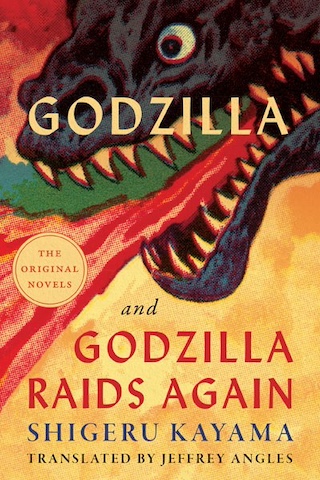
Godzilla and Godzilla Raids Again by Shigeru Kayama, translated from the Japanese by Jeffery Angles (University of Minnesota Press)
Why This Book: Because a few years back, a translation student made me aware of the fact that Godzilla—the basis for Godzilla the movie, and Godzilla the monster, a representation of atomic fears living in our cultural consciousness—had never been translated into English. This feels as impossible as a giant lizard kicking the shit out of a giant moth, but here we are. I haven’t seen a Godzilla movie in easily forty years, but with this Apple TV Monarch: Legacy of Monsters show and the ongoing creation of the “Monsterverse,” well, why not check out the original.
What To Blog: Writing about all of the various “Seasons” series that I can find during the appropriate time of the year. I’m hoping to finish the Ali Smith one in 2024—I have Spring and Summer to go—but after reading the latest Knausgaard books (I could go on and on about these and why I like them, and how he and Fosse utilize the same techniques of time distillation and expansion to synch the reader up with the narrator) I really want to read his quartet as well. Although top of my list is probably Anthony Powell’s (pronounce poole, like the so-so basketball player) A Dance to the Music of Time. Twelve books for twelve months. Pair these (and others?) with Vivaldi (or Richter doing Vivaldi) and compare representations of the cyclical nature of the seasons as they play out across a life.
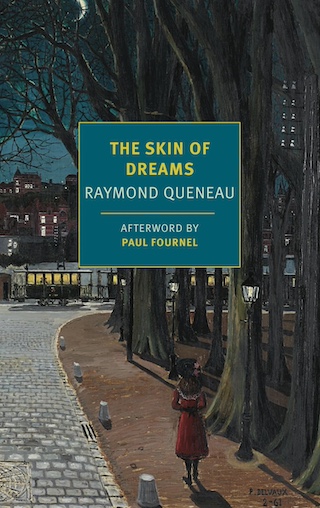
The Skin of Dreams by Raymond Queneau, translated from the French by Chris Clarke (NYRB)
Why This Book: Because the idea of discussing retranslation is catnip for a class like this. And Chris Clarke is brilliant. He talked a bit about this retranslation on our Queneau podcast, and I would love to hear more about the games and tricks he uncovered—and solved—that the previous translation ignored or passed right over.
What To Blog: Daily blog posts about reading a long-ass book. Like Miss MacIntosh, My Darling. Or Finnegans Wake. Von Doderer’s The Demons. Proust. Or, the book that would probably make the most sense: Anniversaries by Uwe Johnson. From a writing standpoint, having to crank out a paragraph or three every day would be an amazing exercise; if the blog writer was entertaining enough, I would follow along—especially during the periods when they’re just sick of the book or hit a section that’s a total slog.
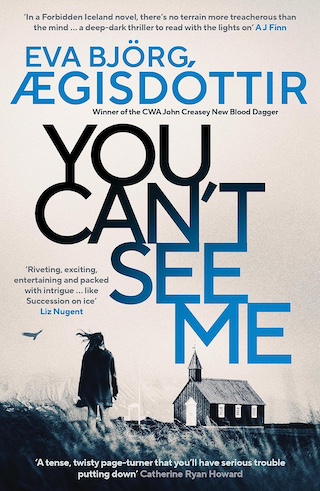
You Can’t See Me by Eva Björg Æisdóttir, translated from the Icelandic by Victoria Cribb (Orenda Books)
Why This Book: I read so many Icelandic books—including a number of thrillers—prepping for the trip I led there this May. I loved them all (and the trip itself!) so much, and could spend a few years reading only Laxness and his amazingly talented brethren. This series, “Forbidden Iceland,” is actively ongoing (this is volume four), so I get a chance to catch up thanks to this class.
What To Blog: OK, this idea came from Brian and is a podcast we want to launch called “Book Hell.” Each episode (or post) is about a widely reviled book. Not Twilight or Hunger Games or Colleen Hoover or anything too obvious, but books like Jonathan Livingston Seagull or that Kardashian science-fiction novel or Battlefield Earth or Irene Iddesleigh by Amanda McKittrick Ros, which opens:
“Sympathise with me, indeed! Ah, no! Cast your sympathy on the chill waves of troubled waters; fling it on the oases of futurity; dash it against the rock of gossip; or, better still, allow it to remain within the false and faithless bosom of buried scorn.
Such were a few remarks of Irene as she paced the beach of limited freedom, alone and unprotected. Sympathy can wound the breast of trodden patience,—it hath no rival to insure the feelings we possess, save that of sorrow.”
We could reassess any original reviews, find any criticism that exists, watch that totally batshit movie version of JLS, and ask the question: “How Did This Get Laid (Out)?”
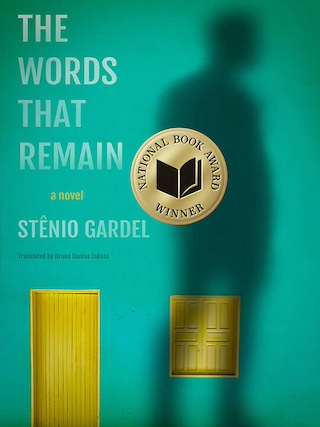
The Words That Remain by Stênio Gardel, translated from the Portuguese by Bruna Dantas Lobato (New Vessel Press)
Why This Book: Because the National Book Award!
What To Blog: “Fifty-Two Years of the National Book Award.” I think it would be fascinating to read the last fifty-two fiction winners of the National Book Award (or Booker Prize) back to back to back to back for a whole year. Inventing connections between various titles, watching the evolution of what’s favored in book culture, digging into the specifics of the award and its ceremony for each year, etc. It would be like reading all the titles on a “Best 100 Novels of All Time” list, but even more random and sus.
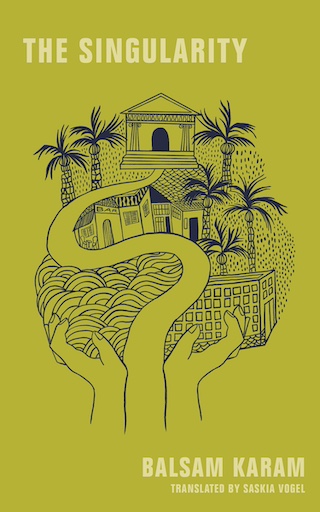
The Singularity by Balsam Karam, translated from the Swedish by Saskia Vogel (Feminist Press)
Why This Book: Because everyone loves to read about dead children, right? And suicide! Added Bonus: A narrative line about immigration troubles and a foreign war. Can’t miss.
What To Blog: Anyone remember the World Cup of Literature or its follow-up the Women’s World Cup of Literature? Someone aped this idea last year, but back in 2014 and 2015 we ran both of those on this site. Picked books to represent all countries competing in the respective soccer tournaments, pitted them against one another in a single-elimination tournament judged by a variety of smartass lit folk. (Still can’t believe Mauro Javier Cardenas picked Murnane over Marias’s Your Face Tomorrow. Tragedy! Outrage! Unimaginable!) Well, in 2024 we have both the Copa America and Euro 2024, so we could relaunch this . . . And in the end pit the two winning titles from the two continents against each other?

The World and Varvara by Simon Fruelund, translated from the Danish by K.E. Semmel (Spuyten Duyvil)
Why This Book: Honestly? Because Open Letter passed on it. And some of the passages I cited for why we did were reworked for this new edition. Plus, Kyle lives in town and this is a way to force him to hang out with me in person for an hour.
What To Blog: Listicles, but presented in a Jeopardy!-like format. A collection of seemingly random books and a prize for whomever is the first to come up with the connection and phrase it as a question. “What are ten books involving alcoholism?” DING DING DING DAILY DOUBLE.
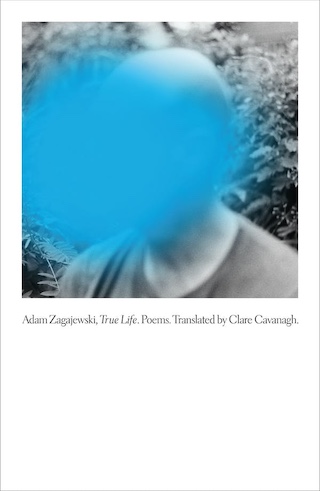
True Life by Adam Zagajewski, translated from the Polish by Clare Cavanaugh (FSG)
Why This Book: One of my grad students is from Poland and translating Polish poetry. In fact, she’s been producing her own translations of a number of Zagajewski poems previously translated by Clare Cavanaugh. Again, catnip for a translation class.
What To Blog: A series of posts examining—and probably crapping on—every accepted cliché about translations. Not just “Lost in Translation,” although definitely that, but “Translators Make the Best Readers” and “Originals Last, Retranslations Are Necessary” and “Should We Foreignize or Domesticate?” All these statements are tossed about willy-nilly—you can find one or more in every New Yorker review of an international book—and deserve to be deconstructed and contextualized, if not outright dismissed. (Inspired by a recent speech I saw from a very prominent author who couldn’t stem the flood of banal proclamations aimed at the NPR set.)
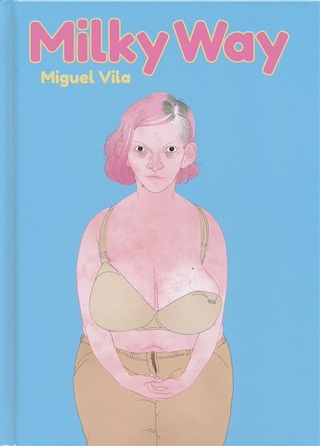
Milky Way by Miguel Vila, translated from the Italian by Jamie Richards (Fantagraphics)
Why This Book: I insist on including a graphic novel every year, but it’s hard! Almost all of them are from France or Korea or Japan—countries from which I usually have a book (or twenty-eight) already queued up. To find this one (coming out this month) from Italy, and translated by Jamie Richards is gold.
What To Blog: Employing the Fibonacci sequence, pick out a single book each month from the designated year (a title from one month ago, one year ago, two years, three, five, eight, thirteen, twenty-one, thirty-four, fifty-five, eighty-nine, one hundred forty-four) and use that title as a lens to evaluate what was going on in culture and the world. Like with most other suggestions, patterns will emerge/be created, strange books will be given a new context, and I would force myself to read things I probably never even thought of or considered. All the context surrounding these books would definitely make for interesting posts, as would looking at the way books are covered at that particular time. This one is juicy.
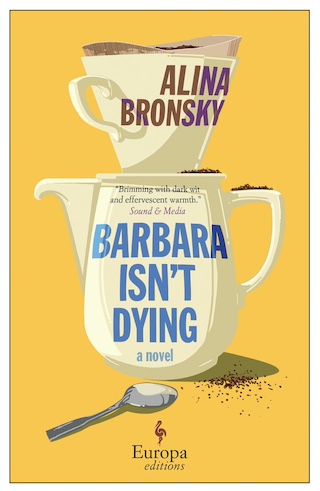
Barbara Isn’t Dying by Alina Bronsky, translated from the German by Tim Mohr (Europa Editions)
Why This Book: Tim Mohr has been talking about coming up to Rochester to do an event for years now. It’s never worked out—and if he can talk to my class this time, it’ll be over Zoom, so no Zweigel’s White Hots for us!—but I think he’s cool as shit. More importantly, this book, written in German, is “hilarious.” I have a long-standing hot-as-Arizona take that there are NO funny books written in German. Bet. No cap. Change my mind. Whatever.
What To Blog: Data, data, and more data. The Translation Database (likely to be moving away from Publishers Weekly since they can’t afford to pay for its maintenance anymore) is extremely useful for this, but I’d love to scrape and dig and find more random stats or quantifiable info. Could be as simple as averaging how many books a grouping of booksellers have read during the year, and how much variance their list has. Breakdowns of which books are reviewed where and how this correlates to who publishes them. Page length tied to best-seller status. Oh, man, a series of statistical posts analyzing listicles would be so goddamn meta that I’m going to have to do this regardless.
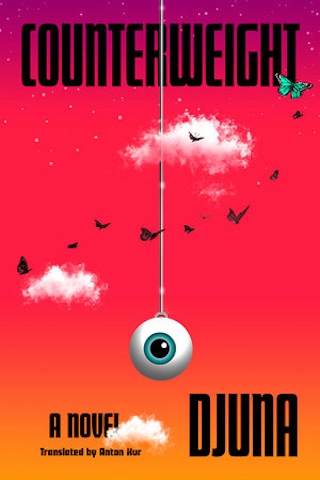
Counterweight by Djuna, translated from the Korean by Anton Hur (Pantheon)
Why This Book: I would use one of the Korean books Janet Hong selected for our forthcoming Translator Triptych, but I’ve read all those! This book has intrigued me since its release because it sounds wacky to the point that it’s either a masterpiece, or simply doesn’t work. (“Originally conceived by Djuna as a low-budget science fiction film, with literary references as wide-ranging as Joseph Conrad and the Marquis de Sade, Counterweight is part cyberpunk, part hard-boiled detective fiction, and part parable of South Korea’s neocolonial ambition and its rippling effects.”) Plus, if I tell my students Anton Hur translated the BTS book, maybe they’ll all show up to class for once.
What To Blog: Only international books with film or TV adaptations, which must be watched in the original with no subtitles. Read the book, puzzle over the movie, pretend to be Roger Ebert and James Wood all at once.
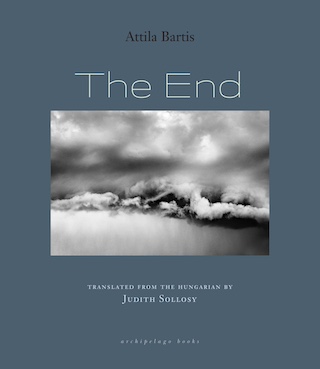
The End by Attila Bartis, translated from the Hungarian by Judith Sollosy (Archipelago)
Why This Book: Because Bartis’s first translated novel, Tranquility, beat out Bolaño’s 2666 for the 2009 Best Translated Book Award.
What To Blog: A month-long, sporadic conversation made up of texts, voice memos, emails, etc., with a bookseller about a specific book. The guest bookseller gets to pick the book, and I have to read it, consider it, talk with them about it. This works best if the bookseller picks something they think I’ll absolutely hate. (It’s a sad truth, but anger sells.)
*
You can purchase any or all of these books via my Bookshop.org store, or wherever you get your books. And stay tuned for some weirdo shit in 2024. There are plans to revamp this site into a more serious literary magazine—a la CONTEXT from the Grand Old Dalkey Days—but it’ll never not include overly long posts that are as messy as my parents’ basement. And just as unapologetic for their disarray.

Leave a Reply